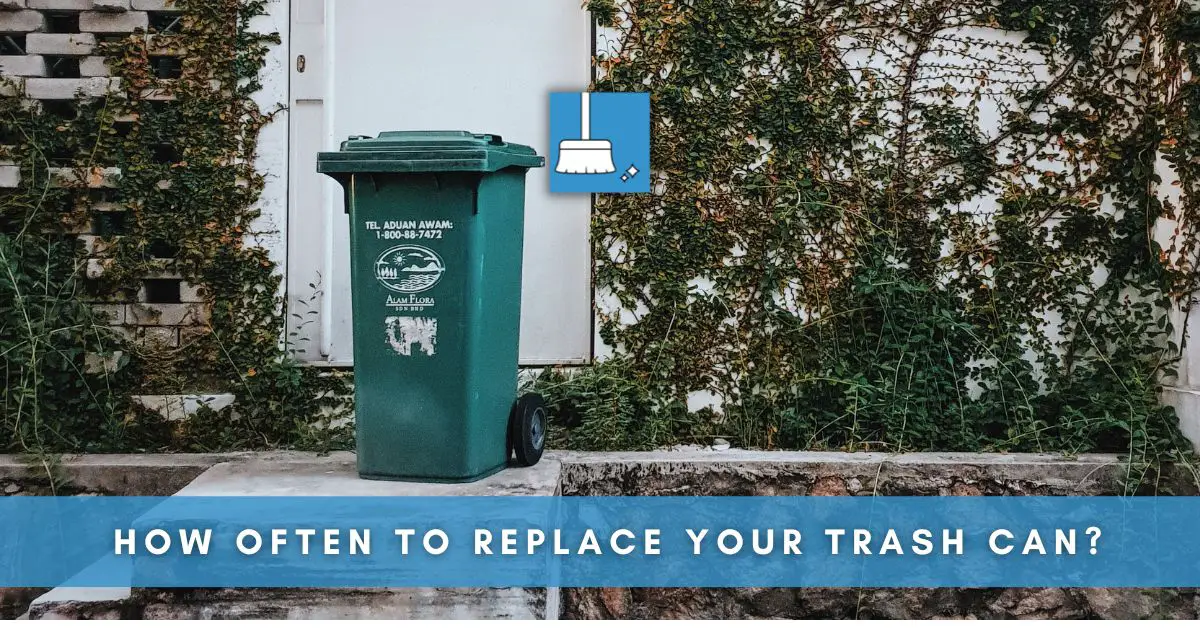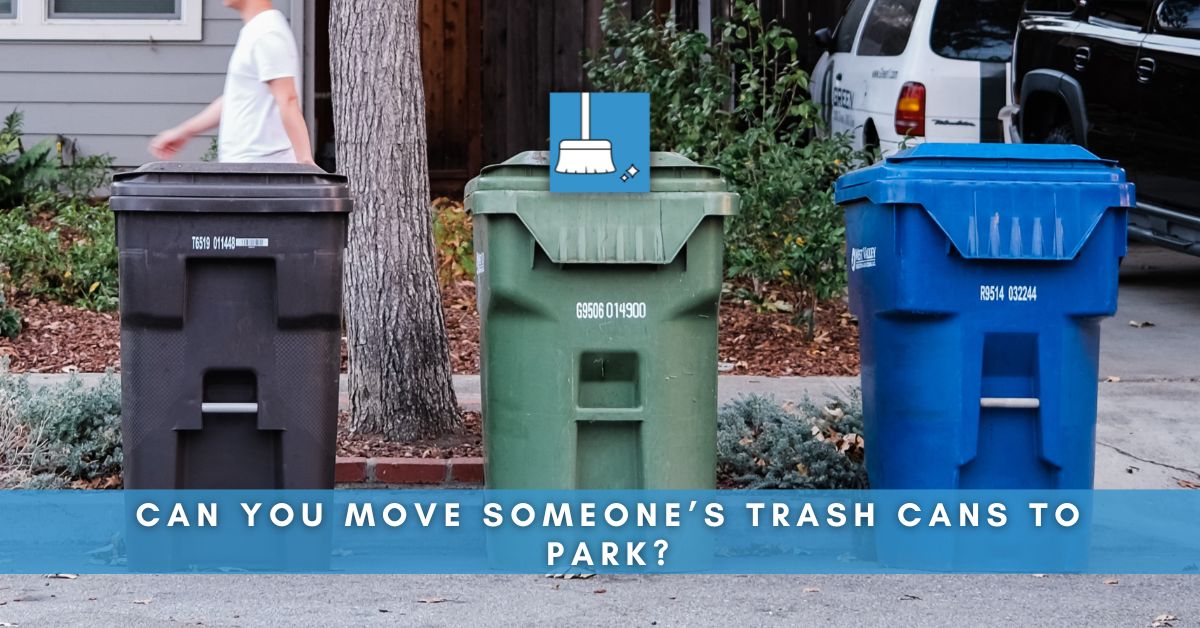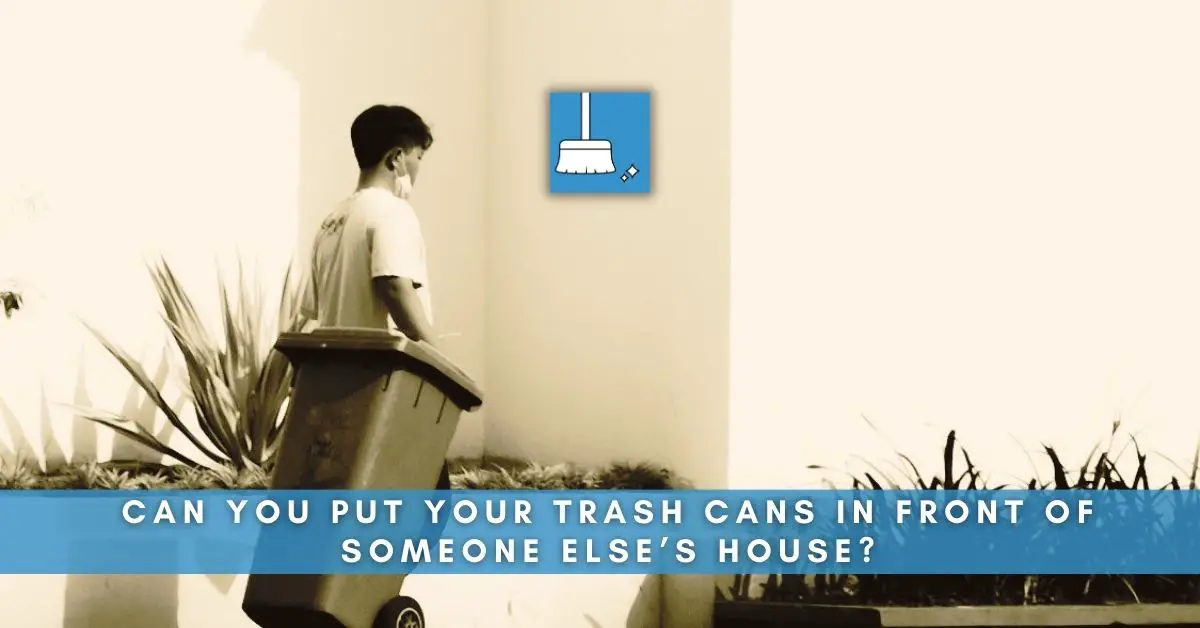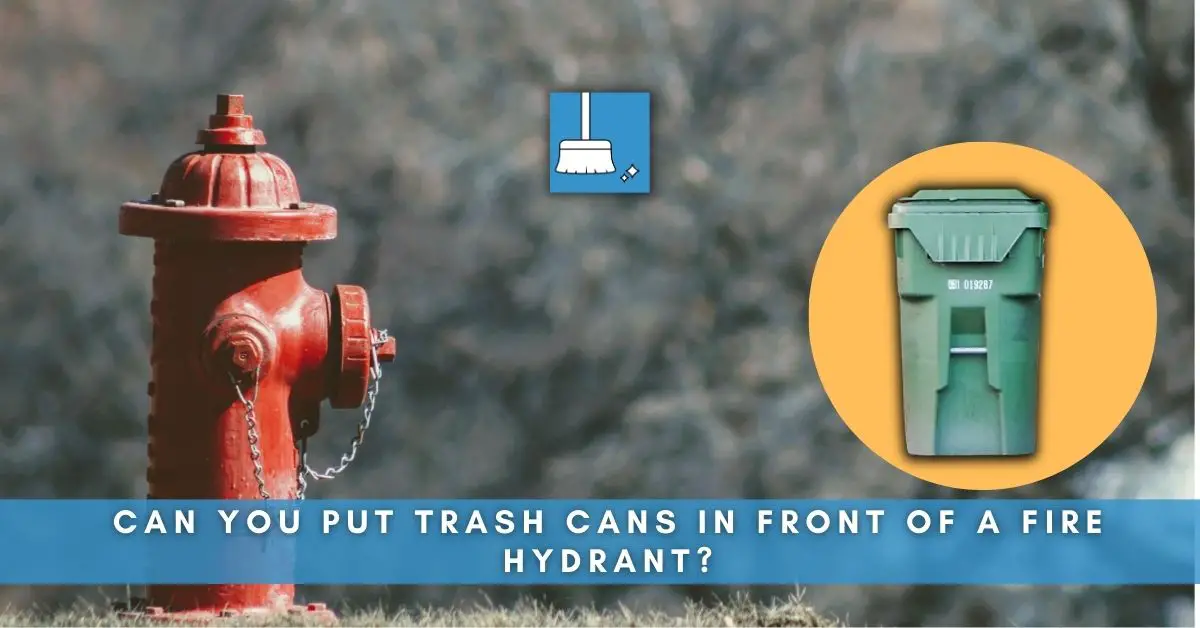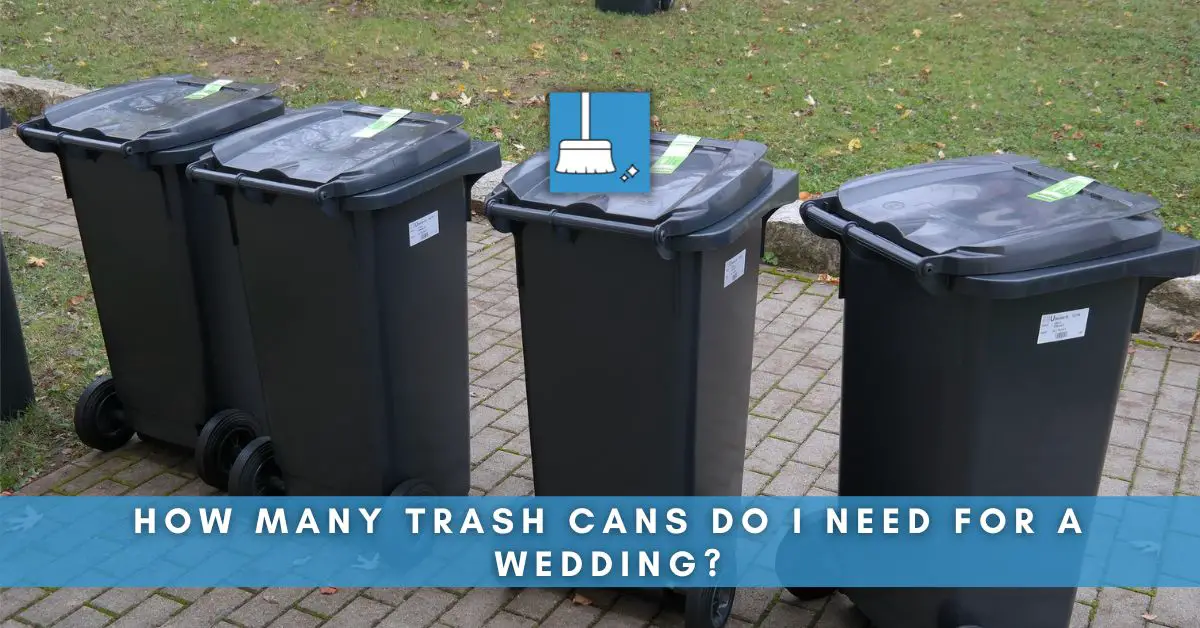Replacing your trash can regularly is an important aspect of maintaining a clean and hygienic environment. Over time, trash cans can become dirty, worn out, and even harbor bacteria and odors. In this blog, we will discuss the importance of replacing your trash can regularly and the common issues that can arise from using old and dirty trash cans.
How Often to Replace the Trash Can?
When it comes to replacing your trash can, there are a few factors to consider.
The recommended replacement frequency for trash cans varies depending on the material and usage. Here are some general recommendations:
1- Plastic Trash Cans: Plastic trash cans typically have a lifespan of 5 to 10 years. However, this can vary depending on the quality of the plastic and how well it is maintained. It is important to regularly clean plastic trash cans to prevent the buildup of odors and bacteria.
2- Metal Trash Cans: Metal trash cans are generally more durable and can last for many years. Steel trash can, for example, can last even a lifetime. They are resistant to cracking and breaking like plastic trash cans.
However, it is still important to periodically inspect metal trash cans for rust or damage that may compromise their functionality.
3- Outdoor Trash Cans: Outdoor trash cans, especially those exposed to harsh weather conditions, may need to be replaced more frequently. Extreme temperatures, UV rays, and moisture can deteriorate the material and affect the integrity of the trash can.
Frequency Based on Usage and Cleaning Habits
The frequency of replacing your trash can also depends on how often it is used and how well it is cleaned. Here are some guidelines:
1- High-Volume Use: If your trash can is used frequently, such as in a busy household or commercial setting, it may need to be replaced more often. Heavy use can lead to wear and tear, resulting in cracks, broken lids, or malfunctioning mechanisms.
2- Proper Cleaning: Regularly cleaning your trash can can extend its lifespan. It is recommended to clean both the interior and exterior of the trash can at least once a month, or more frequently if necessary. This helps prevent odors, bacteria growth, and pests.
Signs That It’s Time to Replace Your Trash Can
Over time, trash cans can become worn out and ineffective, leading to hygiene issues and inconvenience. Here are some signs that indicate it’s time to replace your trash can:
# Wear and Tear on the Trash Can
1. Cracks or Holes: If you notice cracks or holes in your trash can, it’s a clear sign that it is no longer functional. These openings can allow leaks, pests, and unpleasant odors to escape, potentially leading to a messy and unsanitary environment.
2. Broken Lid: A broken lid can make it difficult to contain odors and keep pests out. If your trash can’s lid is no longer functioning properly, it’s time to invest in a new one to maintain a clean and odor-free living space.
3. Damaged Wheels or Handles: Trash cans with wheels and handles provide convenience when it comes to moving and emptying the container.
If the wheels or handles are damaged or no longer working, it can make it challenging to transport heavy loads of trash, causing inconvenience and potential injuries.
# Persistent Odor and Difficulties in Cleaning
1. Lingering Odor: Despite regular cleaning, if your trash can has a persistent unpleasant odor that cannot be eliminated, it may be time for a replacement.
Odor-causing bacteria can accumulate over time and become resistant to cleaning efforts, leading to an unclean and smelly environment.
2. Difficulties in Cleaning: If your trash can has accumulated dirt, grime, and stains that are impossible to remove, it can compromise hygiene standards in your home.
A clean and hygienic trash can is essential to prevent the spread of bacteria and maintain a fresh-smelling environment.
By keeping an eye out for these signs of wear and tear, persistent odors, and difficulties in cleaning, you can ensure that your trash can is always in good condition and functioning effectively.
The Importance of Replacing Your Trash Can Regularly
1. Hygiene: Trash cans can accumulate dirt, grime, and bacteria over time, which can lead to unpleasant odors and potentially pose a health risk. Replacing your trash can regularly ensures a clean and hygienic environment.
2. Odor Control: As trash decomposes, it can emit foul odors that can quickly spread throughout your home or office. Regularly replacing your trash can helps prevent the buildup of these odors and keeps your space smelling fresh.
3. Aesthetics: An old and worn-out trash can detracts from the overall appearance of your space. Replacing it regularly ensures that your trash can remains visually appealing and blends in seamlessly with your decor.
Common Issues with Old and Dirty Trash Cans
1. Bacterial Growth: Over time, bacteria can multiply and thrive in a dirty trash can. This can pose a health risk and potentially lead to the spread of illnesses. Regularly replacing your trash can prevents the buildup of harmful bacteria.
2. Pest Infestation: Dirty and old trash cans attract pests such as flies, ants, and rodents. These pests can cause damage to your property and spread diseases. Replacing your trash can regularly helps prevent pest infestations.
3. Difficult to Clean: As trash cans age, they can become more challenging to clean thoroughly. Stains and residue can build up, making it difficult to remove. Regularly replacing your trash can allows for easier cleaning and maintenance.
Factors to Consider When Replacing Your Trash Can
When it comes to replacing your trash can, several factors should be taken into consideration. Here are some key factors to keep in mind:
#1- Frequency of Use and Size of Household
Frequency of Use: The frequency at which you need to replace your trash can can be influenced by how often it is used. If you have a large household and generate a significant amount of waste, your trash can may need to be replaced more often.
Size of Household: The size of your household also plays a role in determining how often you should replace your trash can. A larger household typically produces more waste, necessitating more frequent replacements.
#2- Material and Durability of Trash Can
Material: The material of your trash can will impact its lifespan. Plastic trash cans, for example, may need to be replaced more often than those made of more durable materials such as stainless steel.
Durability: Consider the durability of your trash can. Some trash cans are designed to withstand heavy use and are more resistant to wear and tear. Investing in a durable trash can can extend its lifespan and reduce the need for frequent replacements.
#3- Hygiene & Odor Concerns
Hygiene: If your trash can has become dirty or difficult to clean, it may be time to consider replacing it. A clean and hygienic trash can is essential for maintaining a healthy living environment.
Odor: If your trash can is no longer able to effectively contain odors, it may be time for a replacement. An odor-free trash can helps prevent unwanted smells from permeating your home and attracting pests.
Extending the Lifespan of your Trash Can
By using the following tips, you can extend the lifespan of your trash can and keep it in good condition for years to come.
# Cleaning and Sanitizing Tips for Different Types of Trash Cans
Cleaning your trash can regularly is crucial in preventing the build-up of odors and bacteria. Here are some cleaning and sanitizing tips for different types of trash cans:
1. Plastic Trash Cans: Plastic trash cans are easy to clean. You can use a solution of warm water and mild dish soap to clean the interior and exterior of the can. Rinse it thoroughly and let it air dry before using it again.
2. Metal Trash Cans: Metal trash cans can be cleaned using a solution of warm water and vinegar or a mild detergent. Scrub the can with a sponge or brush, paying special attention to any stubborn stains. Rinse well and dry completely before use.
3. Stainless Steel Trash Cans: Stainless steel trash cans can be cleaned using a solution of warm water and mild dish soap. Use a soft cloth or sponge to wipe the can, following the grain of the stainless steel. Rinse thoroughly and dry with a clean cloth to prevent water spots.
# Methods for Dealing with Odor Issues
Odors can be a common issue with trash cans. To prevent and eliminate odors, follow these methods:
1. Regularly Empty and Clean the Trash Can: Emptying and cleaning the trash can regularly will help prevent odors from building up.
2. Use Liners or Bags: Using liners or bags in your trash can can help contain odors and make it easier to dispose of the trash.
3. Deodorizing Methods: There are several deodorizing methods you can use to keep your trash can smelling fresh. These include placing dryer sheets, coffee grounds, or baking soda inside the trash can to absorb odors.
References https://www.trashrite.com/blogs/news/how-often-should-you-take-out-the-trash-a-guide-to-maintaining-a-clean-and-odor-free-home https://calrecycle.ca.gov/organics/slcp/collection/systems/ https://publicworks.baltimorecity.gov/solid-waste/cans https://www.wm.com/location/california/north-valley/chico/facts/index.jsp https://www.bhg.com/homekeeping/house-cleaning/tips/how-to-clean-trash-can/ https://titusville.com/306/Garbage-Collection-Procedures https://www.epa.gov/recycle/frequent-questions-recycling

